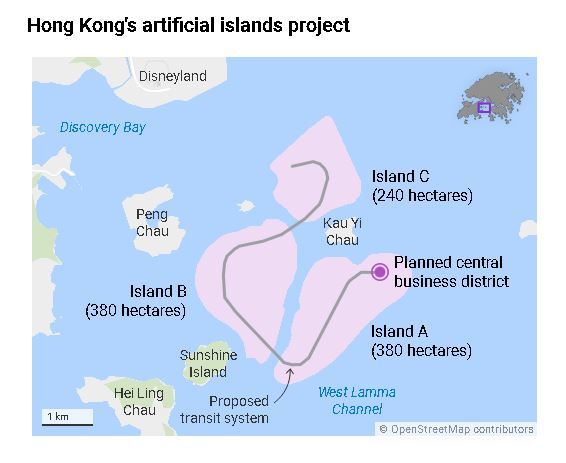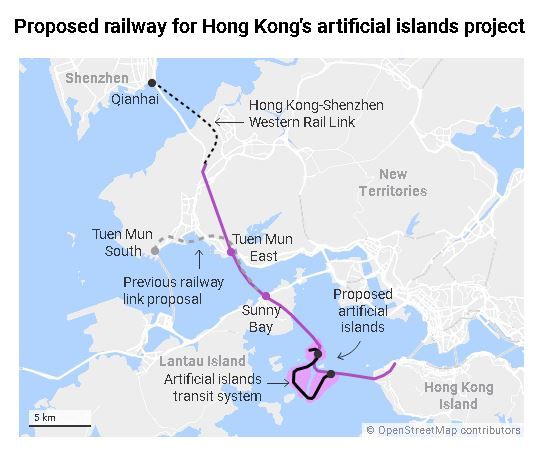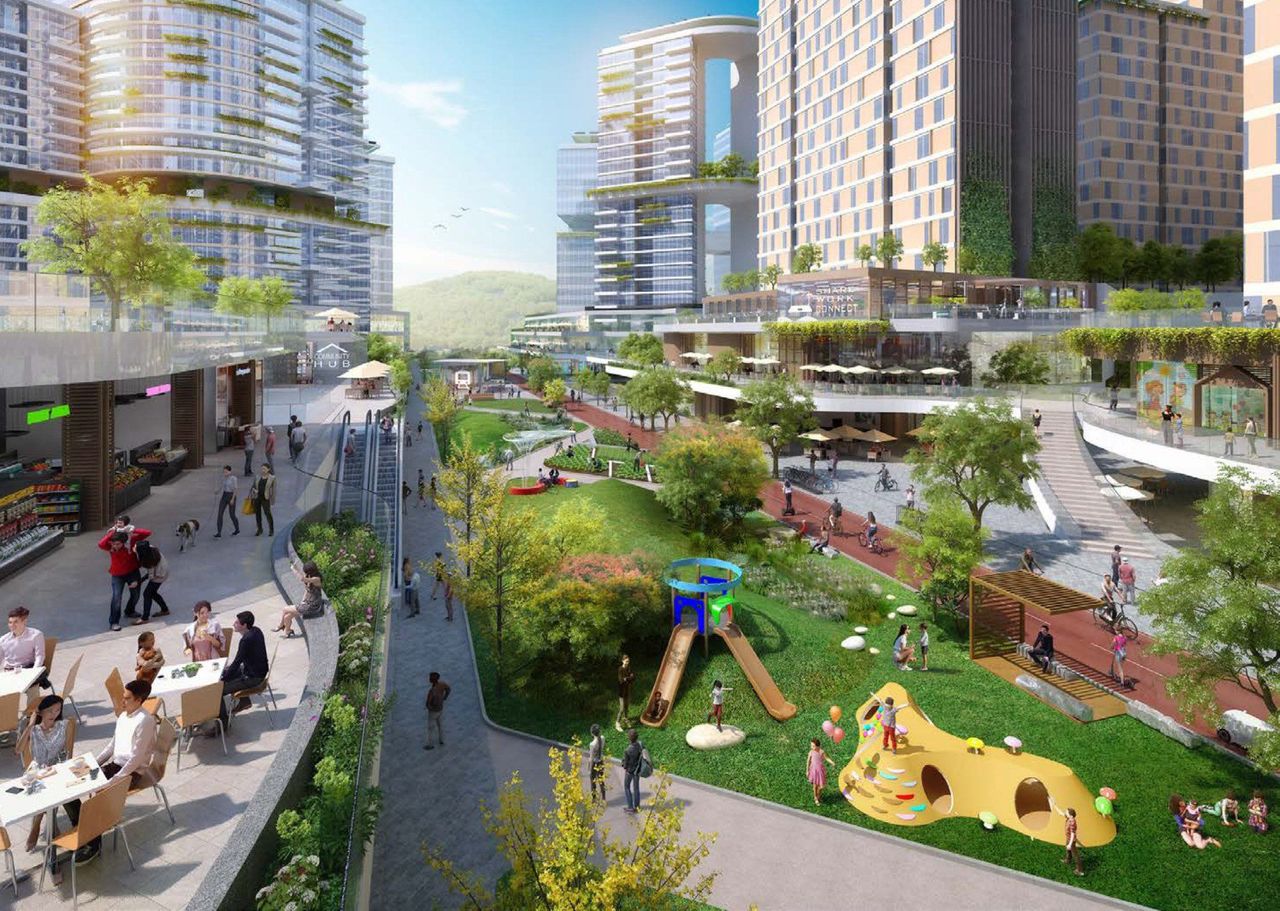Hong Kong News

Price tag for artificial islands off Hong Kong’s Lantau balloons to HK$580 billion
The estimated cost of building three artificial islands to house more than half a million people in space-starved Hong Kong has jumped by 16 per cent to HK$580 billion (US$75 billion), while the projected revenue from selling the land has fallen by nearly a fifth, the government has revealed.
Despite the worsening financial picture, the Development Bureau on Tuesday said it would go ahead with the Lantau Tomorrow Vision and create 1,700 hectares (4,200 acres) of artificial land to the west of Hong Kong Island, arguing the costs involved were likely to change before the first stage of the project was completed in 2033.
“This is a medium to long-term development project,” the bureau’s spokesman said. “We are not worried about short-term market fluctuations.”
When the project cost was unveiled by the previous administration in 2019, it carried an initial price tag of HK$500 billion and was expected to generate HK$925 billion in land sale revenue for the development of 1,000 hectares (2,500 acres).
But according to the bureau’s latest estimates, the cost will be at least HK$580 billion, while just HK$750 billion is expected from auctioning off sites to developers.

The bureau also revealed new details about the design of the islands, which would be separated by a Y-shaped channel to help protect ecology and avoid impact on water quality. Up to 210,000 flats are planned for a population of 550,000 with the first batch of homes set to be delivered by 2033, according to a paper the bureau submitted to the Legislative Council.
Authorities aim to provide the first homes on 300 hectares of reclaimed land, out of a planned 1,000 under the first stage of the project, while the remaining 700 hectares would be built decades after.
The government also hoped to construct what would be the city’s third central business district, spanning 100 hectares, on the new island closest to Hong Kong Island, while the other two islands would accommodate recreation, tourism and utility infrastructure.

All three islands would be linked with a mass transit system, while a new 13km (8-mile) road would connect the new area with Hong Kong Island and Lantau Island.
But under the latest plan, the bureau has amended its proposed route for a railway extending from the new islands to the New Territories. Instead of running along the south of Tuen Mun as previously suggested, it now continues north to Hung Shui Kiu to link with a proposed line to Qianhai in Shenzhen.
The bureau denied accusations the revised rail link would neglect the needs of certain residents. Instead, it stressed the new route could enhance the islands’ connectivity with the Northern Metropolis, a plan to build homes for 2.5 million people in the New Territories near the border with mainland China, transforming it into an I&T and housing hub.
Environmentalists have from the outset opposed the mega reclamation project, and on Tuesday Chan Hall-sion, a senior campaigner at Greenpeace Hong Kong, urged the plan be scrapped, arguing the cost would only go up due to inflation. Authorities had also not yet revealed details of the project’s environmental impact, she noted.
 An artist’s illustration depicting the project’s community living spaces.
An artist’s illustration depicting the project’s community living spaces.
“It is hard to convince the public to push forward the project,” Chan said, suggesting the government instead develop brownfield sites, or damaged agricultural lands mostly occupied by warehouses.
The bureau will launch a public consultation early next year and meet district councils and professional institutes, while the public could submit their views via letters or online.
Thomas Lee, president of the Hong Kong Institute of Planners, said he believed the government would not blindly push forward with the project given the costs involved, although officials could hold meetings with the public to gather feedback on the project and explain their plan
The government aims to complete the detailed design for the project, apply for funding from the legislature and start reclamation by 2025.











